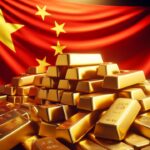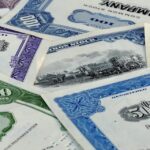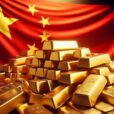
His life reads like any great Hollywood script. No surprise then that director Ron Howard has flirted with the concept of adapting Swiss Journalist Daniel Ammann’s book The King of Oil: The Secret Lives of Marc Rich for the silver screen. And what an amazing motion picture it would make: a tale of money, power, politics and presidential pardons.
I am a modest, quiet person who has never done anything illegal
He was born Marcell David Reich to a working-class family on December 18, 1934 in Antwerp, Belgium. His time in Europe would be short-lived. He and his family – who were Jewish – escaped the Nazis, fleeing to the US in 1941, where they settled in Kansas City, Missouri. His father opened a jewellery store shortly after arriving, which was a welcome change to selling discarded factory goods as he had done in Antwerp. His father also chose to have the family name altered to fit in with their new surroundings, opting for the more American-sounding Rich, and in 1950 they made the move to Queens, New York.
Humble beginnings
As a young boy Rich attended the private Rhodes School in Manhattan. He later attended New York University but did not graduate. Like all great tales of success he began his career from humble beginnings. When he was 18 a family friend got him a job in the mailroom at Phillip Brothers, then the world’s largest raw materials trading company (now Phibro). It would be the place where he would earn the nickname “the business machine,” due to his tenacious work ethic. He rose quickly up the ranks during his time there and in 1967 was sent by the company to head up their offices in Madrid, where he met Pincus ‘Pinky’ Green, his future business partner. At Phillip Brothers the ‘King of Oil’ developed new ways to buy and sell the commodity for immediate delivery, which moved away from the traditional long-term contracts used at the time. Many credited him for the creation of the spot market for crude oil in the early 1970s, which ruffled feathers by taking power away from the larger established oil companies that had relied on traditional long-term contracts for future purchases. In 1973, Rich and Green left the company after disagreements over the size of their bonuses. He and Green then formed Marc Rich AG in the Swiss town of Zug, whose low taxes have made it one of the world’s oil trading centres. The company would later be renamed Glencore International, the commodities trading giant.
No blockbuster would be complete without a little controversy. The fairy-tale story of a young Jewish boy from Queens growing up to be known as the ‘King of Commodities’ is one tainted by allegations of racketeering, fraud and tax evasion to the tune of $48m – at the time the biggest tax evasion case in US history. It is the story of a man who cultivated an array of relationships with the rich and powerful that not only allowed him to succeed in business, but that stood firm when he was indicted – the strength of those relationships would help in securing him a pardon from Bill Clinton just hours before the US president left office on January 20th, 2001.
Clinton’s pardon of Rich sparked debate, one that draws similarities in its nature to that of the current banker bailout. Many critics then, as is the case now, believed that such a pardon exemplifies that justice means one thing for ordinary people and another for powerful insiders. The House Committee on Government Reform report on March 14th, 2002 outlined that “the President abused one his most important powers, meant to free the unjustly convicted or provide forgiveness to those who have served their time and changed their lives. Instead, he offered it up to wealthy fugitives whose money had already enabled them to permanently escape American justice.” The committee may have seen him as a villain, but he certainly never felt like one. In an interview with now Senior Editor of Fortune magazine, Shawn Tully, in 1986, he spoke of his horrible portrayal “as a workaholic, a loner, a money machine. I’m a modest, quiet person who has never done anything illegal.”
Indictment and sanctuary
Though Rich declared his innocence he was indicted on 65 criminal counts. One of the most serious charges arose after he defied a US boycott of Iran after pro-American Shah Mohammad Reza Pahlavi was overthrown in 1979. Even when 52 American citizens were held hostage by Iranian revolutionaries it did little to dissuade Rich from doing business with the oil-rich nation. The indictment was filed in 1983 by then US Federal Prosecutor Rudolph Giuliani who later became mayor of New York and to this day is outraged by the decision to pardon the billionaire. Had Giuliani got the conviction he desired it would have led to a sentence of more than 300 years behind bars for the oil tycoon. The charges forced him to abandon the country that had offered his family refuge and where he had built his fortune. He would find sanctuary by returning to Europe.
The Swiss refused to arrest or extradite him due to the country’s comparatively relaxed tax laws, and as Marc Rich AG was a Swiss company Rich argued it was legal for him to do business with Ayatollah Ruollah Khomeini’s Iran as Switzerland had no embargo against the state. In an interview with the American network NBC he admitted that the charges created “an unfortunate situation”, but “the question is was there a crime? And I’m saying I don’t think so”.
Safely in Switzerland, his companies pleaded guilty to the US charges, resulting in fines of $130m, but this would not stop the FBI opting to place him on their Most Wanted List for almost two decades. His life on the run was not exactly filled with hardship. He had a mansion reportedly filled with fine art, among which there was reputedly a Picasso. His free time was spent by the pool of his multi-million dollar home in Marbella, or hidden away in his villa on the ski resort of St. Moritz.
For years he remained a thorn in the side of federal prosecutors, while the Swiss were more than happy to provide asylum for the billionaire trader. The mayor of the quiet Swiss village of Meggen, where he would take up residency, was only too happy to report that Rich, unlike in the US, paid his taxes on time and in full. During his 17 years as a fugitive he never returned to the US. He was unable to even attend his daughter Gabrielle’s funeral after she lost her battle with leukaemia in 1996. Nor did American agents ever succeed in capturing him. He narrowly evaded his prosecutors several times in Britain, Germany, Finland and Jamaica.
Friends in high places
Jamaica would also be one of the many stages where Rich would be able to demonstrate his unique way of doing business. It is important to note that one of his early accomplishments at the age of 24 had been negotiating a mining deal with Fidel Castro’s regime in Cuba. He specialised in acting as a middleman in trouble spots like Cuba, Iran and apartheid South Africa. Such spots would be off limits to many due to the risk. In Jamaica, Rich would use those skills to make a considerable profit through unconventional means.
For years [Rich] remained a thorn in the side of federal prosecutors, while the Swiss were more than happy to provide asylum for the billionaire trader
Rich was particularly close to Jamaica’s President Edward Seaga, whom he had reportedly given $45,000 so the national team could compete at the 1984 Olympics in Los Angeles. In addition, he is said to of lent Seaga’s Jamaica a total of $200m between 1980 and 1985. The donations came when the Aluminium market was at an all time low. Alcoa, a Jamaican plant, which refined much of the island’s supplies of alumina, was forced to close. Alcoa agreed to lease the plant to the Jamaican government in order to keep it running, but there would need to be a buyer for the output produced. Rich stepped in and became the buyer they required. In 1986 he signed a 10-year agreement to purchase the output, which stood at some 800,000 tons of alumina, a considerable proportion of world production at the time. For the first two years the contract allowed Rich to buy 20 percent of the output at low fixed prices. His ability to gain favour with heads of states and other influential figures not only provided great monetary gains, but also eventually lead to enough political clout to gain his freedom. For years the Israeli government, including ex-Prime Minister Ehud Barak, urged Clinton to pardon him. Over the years he donated nearly $80m to Israel. In particular he gave a lot of money to the Ministry of Immigrant Absorption, which supports Jews immigrating to Israel to find employment and accommodation. Former head of Mossad, Shabtai Shavit was immensely fond of the business mogul, since it was he who funded the evacuation of many Jews from countries like Ethiopia and Yemen. Rich also supported Shavit by permitting his agents to access to his many offices around the globe.
The “King of Oil” even got support from the King of Spain. Rich’s ex-wife Denise Eisenberg, an Oscar-nominated songwriter and socialite, donated £201,000 to the Democratic Party in 2000 ahead of President Clinton announcing his pardon in 2001. The contribution understandably helped fuel the furore around Rich. However, his legal team had exhausted all other options. The US Justice Department made it clear they wouldn’t drop the tax evasion case against him and so his only hope of freedom lay in the hands of Clinton. Clinton took advice from tax experts who concluded that no crime had been committed and even the federal authorities official investigations found no evidence of wrongdoing. However, none of it did much to stem the tide of criticism levelled at the president for his decision to pardon Rich.
Clinton later conceded that the he regretted the pardon saying: “It was terrible politics. It wasn’t worth the damage to my reputation.” The presidential pardon, albeit controversial, alluded to something more significant about the financier. It encompassed the characteristics that made him into the business giant he will forever be remembered as, and is indicative of why he acquired the nickname ‘El Matador’. His ability to create not just strong business contacts, but long lasting ties with those within the political sphere, with his calm demeanour and impeccable business acumen, ensures the legend of Marc Rich will be told and recounted for years to come.
Rich made friends through his philanthropic donations, and frequently gave money to the arts and to charities. It was this, combined with his willingness to do business where others wouldn’t, that really set him apart from his competitors. One trader who worked with him said it best: “Marc was prepared to sail very, very close to the wind and not get too troubled about the legality of his transactions.” In return for his readiness to cut it so close, coupled with his generosity, he built business contacts around the world – contacts that would guard against extradition and even contacts that would help him achieve his presidential pardon.
In 1993, he sold his own company, Glencore – now the world’s largest commodity trader – and set up a new firm, Marc Rich and Co Holding, also based in Zug. After spending several years in Zug, Rich moved to La Villa Rose on the shores of Lake Lucerne where he suffered a stroke on June 26th, 2013.
He died later in hospital. He leaves behind his two daughters Ilona Rich Schachter, Danielle Rich Kilstock, six grandchildren and a legacy that will ensure we are talking about Marc Rich for many years to come.











